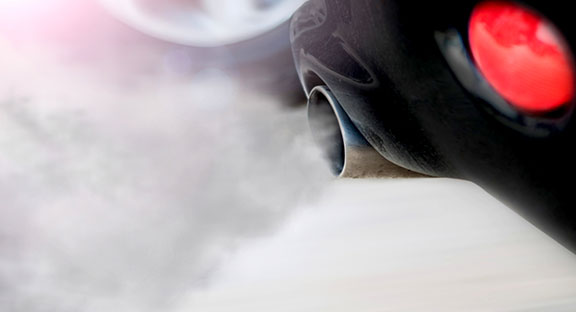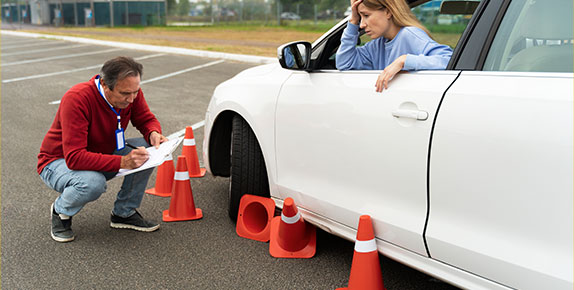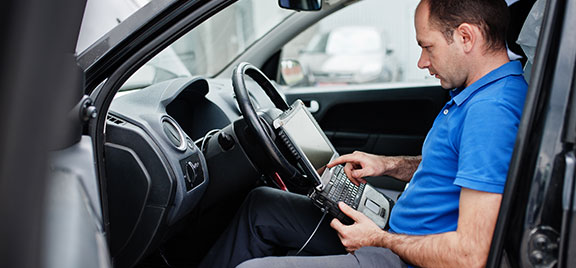SEAT Diesel Claim: Your Legal Rights
The SEAT Diesel Emissions Scandal came to light when it was revealed that car manufacturers, including SEAT, had used cheat software known as defeat devices in their diesel engines in order to pass emissions tests. These cheat devices manipulated the levels of nitrogen oxide (NOx) emissions, making the cars appear cleaner during testing than they actually were under real-world driving conditions. Consequently, owners of SEAT diesel cars may have experienced lower fuel efficiency and higher pollutant emissions than what was advertised. This scandal is part of the larger dieselgate scandal involving the Volkswagen Group, raising concerns about car brands' adherence to emissions standards.
The SEAT Diesel Emissions Scandal emerged during the 2015 Dieselgate scandal when US regulators discovered inconsistencies in the emissions of VW Group vehicles. Volkswagen admitted to using defeat devices in 11 million vehicles worldwide, including models from SEAT. In the UK, approximately 76,773 SEAT diesel cars were implicated. In 2017, Volkswagen faced significant fines and corporate consequences, underscoring the seriousness and global impact of the scandal.
The Root of the Diesel Emissions Issue
The diesel emissions issue can be traced back to the use of defeat devices, also known as cheat software, in diesel engines. Car makers, including SEAT, installed these devices to manipulate emissions tests and meet stringent emissions standards. These cheat software alter the engine's performance during testing, resulting in lower emissions of pollutants such as nitrogen oxide (NOx). However, in real-world driving conditions, the emissions levels of these diesel cars can be significantly higher. This manipulation of emissions tests has not only affected the accuracy of emissions data but has also impacted the fuel economy and emissions performance of the vehicles, leading to worse fuel efficiency and higher levels of pollutants being released into the environment.

The Impact of the Scandal on SEAT Car Owners
The SEAT diesel emissions scandal has had a significant impact on SEAT car owners. Firstly, affected owners may face potential legal costs when pursuing an emissions claim against the company. Many SEAT owners have sought legal advice to understand their rights and options in light of the scandal. Secondly, the resale value of SEAT diesel cars has been affected, raising concerns for owners looking to sell or trade in their vehicles. Additionally, the scandal has raised questions about the eligibility of affected SEAT models for emissions standards, further complicating the situation for owners. As a result, many SEAT owners are actively considering joining group action claims to seek redress for the impact of the scandal on their vehicles and legal costs incurred along the way.
Seat Emissions Scandal: Key Statistics
| Statistic | Source |
|---|---|
| Seat's parent company, Volkswagen Group, admitted to installing emissions-cheating software in 11 million vehicles worldwide, including Seat models | Reuters |
| The scandal affected approximately 700,000 Seat vehicles worldwide, primarily the Ibiza, Leon, and Exeo models | Automotive News Europe |
| Seat recalled around 500,000 vehicles in Europe in 2015 and 2016 to address the emissions-cheating software issue | BBC News |
| The recall included Seat Ibiza, Leon, and Exeo models produced between 2009 and 2015 | Automotive News Europe |
| Seat set aside €210 million ($247 million) to cover the costs related to the emissions scandal | Reuters |
| The company's operating profit dropped by 12.7% in 2016, partly due to expenses related to the emissions scandal | Seat Annual Report |
| Seat's CEO, Luca de Meo, apologised for the company's role in the emissions scandal and pledged to focus on cleaner technologies | Automotive News Europe |
| Seat's market share in Europe dropped from 2.8% to 2.6% in the aftermath of the scandal | JATO Dynamics |
| Seat's global sales dropped by 0.6% in 2016, the year following the emergence of the emissions scandal | Seat Annual Report |
Please note that these statistics were sourced from various news outlets and may be subject to updates as the Seat emissions scandal develops.
Identifying Affected SEAT Models
To effectively navigate the SEAT diesel claim scandal, it is important to identify the models that have been implicated. This is very easy, all you need to do is use our vehicle reg look up and we will let you know in seconds if your vehicle was affected.
Which SEAT diesel car models are affected?
In order to fully comprehend the impact of the emissions scandal, it is crucial to identify the SEAT diesel car models that have been affected. While we have already mentioned the [Insert models] as being implicated in the scandal, it is important to consider the broader scope of the scandal and its implications for other SEAT diesel models. These vehicles were manufactured by Volkswagen, Audi, SEAT, or Skoda prior to 2016 and are equipped with a diesel engine ranging from 1.2 to 2.0 liters in size, specifically known as the EA189 engine. It is imperative for owners of SEAT diesel cars to be aware of how their vehicle models may have been impacted by the scandal. This knowledge will help them understand their legal options and determine if they are eligible to make emissions claims.
The Legitimacy of Your SEAT Diesel Claim
As an affected SEAT diesel car owner, you may wonder about the legitimacy of your claim in the midst of the scandal. Seeking legal advice is crucial in understanding the criteria for a valid SEAT diesel claim and verifying the legitimacy of your claim. By consulting legal experts, you can gain valuable insights into the requirements of filing a claim, the eligibility criteria, and the documentation necessary to support your case. Understanding the inner workings of the emissions scandal, the associated legal recourses, and the claims management process will empower you to navigate the complexities of your SEAT diesel claim effectively.
Criteria for a Valid SEAT Diesel Claim
To ensure the validity of your SEAT diesel claim, it is essential to meet specific criteria outlined by legal experts. Here are the key factors that contribute to a valid claim:
- Your vehicle must be affected by the diesel emissions scandal.
- Your claim must have a basis in the misrepresentation of emissions standards and the impact of the scandal on your vehicle's fuel economy and emissions performance.
- Seeking legal advice is crucial for understanding the nuances of the claim process, the legal standards, and the eligibility requirements.
By satisfying these criteria, you can ensure the legitimacy of your claim and maximise your chances of seeking appropriate legal action for the impact of the scandal on your SEAT diesel vehicle.

The Process of Verifying Your Claim's Legitimacy
Verifying the legitimacy of your SEAT diesel claim requires a comprehensive understanding of the scandal, the legal process, and the emissions claim procedure. This can be achieved through the assistance of claims management companies or law firms specialising in diesel claims. These experts possess the knowledge and expertise to guide you through the verification process, including the collection of evidence, identification of eligibility requirements, and the legal standards relevant to your claim. By relying on their support, you can gain the confidence and clarity needed to navigate the complexities of the claim process and verify the legitimacy of your SEAT diesel claim effectively.
Compensation for SEAT Diesel Emissions Claims
As a victim of the SEAT diesel emissions scandal, seeking compensation for the impact of the scandal on your vehicle is a key consideration. Compensation aims to provide reparation for the financial losses, such as decreased resale value and fuel economy, incurred as a result of the scandal. Pursuing a diesel emissions claim can help you recoup these losses and cover any legal costs associated with the claim process. Exploring the potential compensation available, understanding the factors influencing the compensation amount, and familiarising yourself with the legal and financial aspects of the claim will enable you to determine the best course of action in seeking appropriate compensation for the damages caused by the scandal.
Calculating Potential Compensation Amounts
Calculating the potential compensation amounts available as part of a SEAT diesel emissions claim depends on various factors, including the extent of the impact of the scandal on your vehicle and the financial losses suffered. While precise figures cannot be determined until the claim evaluation process, here are some key considerations that may influence the compensation:
- The severity and duration of the negative effects on fuel economy and emissions performance of your vehicle.
- The specific legal costs incurred during the claims management process, including legal representation fees.
- The eligibility of your personal contract purchase (PCP) claims, which can affect the compensation amount.
Understanding these factors, consulting legal experts, and gathering the necessary evidence of the scandal's impact will help assess the potential compensation amounts available to you as part of your SEAT diesel emissions claim.
Factors Influencing Compensation
Several factors can influence the compensation amount awarded for SEAT diesel emissions claims. Understanding these factors will provide clarity on the basis for potential compensation. Here are key factors that may influence the compensation:
- The emissions standards the car was supposed to meet, the impact the scandal had on the vehicle's fuel economy, and the emissions performance of the car in real-world driving conditions.
- The worse fuel economy experienced by owners due to the scandal, resulting in increased costs.
- Personal contract purchase (PCP) claims, if eligible, can affect the compensation calculation.
- Taking part in a group action claim may have implications for the compensation amount received.
Considering these factors and seeking legal advice will enable you to develop a comprehensive understanding of the potential compensation amounts available as part of your SEAT diesel emissions claim.
Exploring Legal Options Post Dieselgate
The dieselgate scandal, of which the SEAT diesel emissions scandal is a part, has raised questions about legal recourses for affected car owners. Understanding the legal options available post-scandal, including the closure of the litigation, is critical for SEAT diesel car owners seeking compensation and resolution. Exploring legal recourses, their implications, and the rights of owners in the aftermath of the scandal provides a clearer picture of the options available in seeking justice.
Rights of SEAT Diesel Car Owners Post Scandal
In the wake of the seat diesel emissions scandal, it is vital for seat diesel car owners to understand their legal rights. Seeking legal advice can provide clarity on the rights of owners, the legal avenues available, and the potential remedies following the scandal. Knowing your rights can empower you to make informed decisions regarding the legal recourses and the pursuit of compensation for the impact of the scandal on your vehicle. By understanding the legal landscape post-scandal, you can protect your interests and ensure that justice is served in the face of the seat diesel emissions scandal.

Legal Recourses Available for Affected Owners
Affected owners of seat diesel cars have several legal recourses available to them. Seeking the assistance of a legal firm specialising in emissions claims can provide valuable guidance and support throughout the claims management process. One option is to join group action claims, which allow multiple owners to collectively seek compensation for the impact of the scandal on their vehicles. By pooling resources, claimants strengthen their legal case and create a unified front against the car manufacturer. Exploring these legal recourses, understanding the legal representation available, and considering the implications of group action claims will enable affected seat owners to pursue the most appropriate legal avenues to seek the compensation they deserve.
The Closure of the Volkswagen Group Litigation
The closure of the Volkswagen Group Litigation, the high-profile legal battle resulting from the dieselgate scandal, has had implications for seat owners seeking justice for the emissions scandal. The litigation, which took place in the UK High Court, established the legal basis for claims against the Volkswagen Group. The closure of this litigation has undoubtedly raised questions about the impact on seat owners and their claims for compensation. Understanding the closure of the litigation and its wider implications for seat owners is essential in pursuing and assessing legal options post-scandal.
Implications of the Litigation Closure for SEAT owners
The closure of the litigation involving the Volkswagen Group has significant implications for seat owners seeking compensation as part of their SEAT emissions claim. While the litigation primarily targeted the Volkswagen brand, the outcome of the legal proceedings has paved the way for affected seat owners to seek justice. However, the closure of the litigation has also raised questions about the legal costs involved in pursuing a claim against the car manufacturer. Understanding the implications of the litigation closure, the potential legal costs, and the available legal recourses will guide seat owners in determining the best course of action to seek compensation for the impact of the scandal on their vehicles.
What Does the Future Hold for Diesel Emissions Claims?
As the dust settles from the dieselgate scandal, the future of diesel emissions claims remains uncertain. The scandal has brought the integrity of emissions standards into question, raising concerns about the industry's compliance with environmental regulations. Car manufacturers, including seat, have come under scrutiny, facing legal action from affected owners seeking compensation for the impact of the scandal. Moving forward, it will be crucial to closely monitor the response of car manufacturers, legislative changes, and the evolving emissions standards landscape. By staying informed, seat owners will have the knowledge necessary to protect their rights and hold car manufacturers accountable for their actions.

Is There Still a Chance for Compensation Post Litigation Closure?
Despite the closure of the litigation involving the Volkswagen Group, there is still a chance for seat owners to seek compensation for the impact of the scandal on their vehicles. While the litigation primarily focused on the Volkswagen brand, the legal basis established during the proceedings can be used to support claims by seat owners. Pursuing a diesel emissions claim against the VW Group, which includes seat, provides affected owners the opportunity to seek compensation for the financial losses incurred as a result of the scandal. By leveraging the legal standards and evidence presented during the litigation, seat owners can bolster their case and maximise their chances of securing the compensation they deserve. Although the closure of the litigation marks the end of a significant legal battle, the fight for justice and fair compensation for seat owners continues.
Is it necessary to hire a lawyer for my Seat diesel claim or can I handle it on my own?
While it is not necessary to hire a lawyer for your Seat diesel claim, it is highly recommended. A lawyer will have the expertise and knowledge to navigate the legal process, negotiate with the other party, and ensure you receive fair compensation for your claim. It is also highly unlikely that Seat would engage on a case by case basis so it is almost certain that a group claim is the way to proceed.

